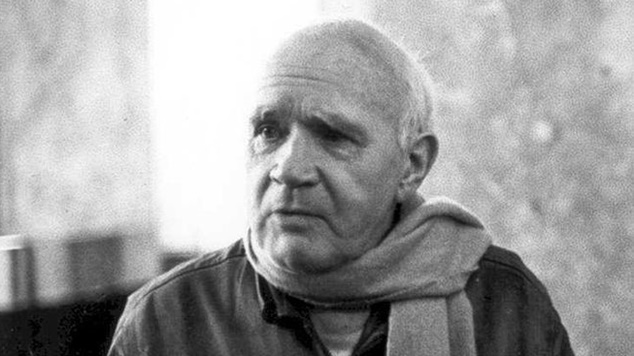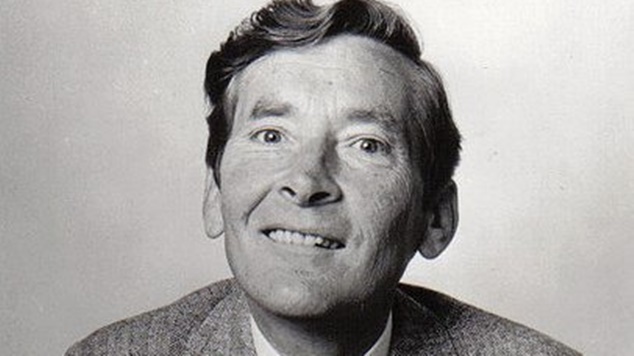
French writer Jean Genet found success later in life
When Jean Genet passed away at the age of 75 in 1986, he’d inspired a generation of artists and activists.
Jean Genet had a tough start at life. Born in Paris in 1910, his mother put him up for adoption when he was seven months old. He often ran away from home and when his foster mother passed away, he was taken in by an elderly couple. He didn’t stay with them for long, reportedly he squandered some money he was meant to be delivering to someone else and was often going out late at night and shocking his new foster parents by wearing makeup.
At the age of 15 he was sent to prison, a period who would later recount in his novel Miracle of the Rose. After his time in prison, he joined the Foreign Legion when he was 18, but was discharged after he was caught engaging on a homosexual act. He then spent time as a vagabond getting by through theft and sex work across Europe.
He returned to Paris in 1937 and spent time in and out of jail for petty offences. While serving time in prison he wrote his first poem which he later self-published and his first novel Our Lady of the Flowers.
Genet introduced himself to Jean Cocteau who was impressed with his writing and helped him get his first novel published. Later when authorities threatened Genet with a lifetime sentence for his multiple return visits to prison Cocteau rallied other prominent artists including Pablo Picasso and Jean-Paul Sartre to appeal to the French President to show leniency. Genet would never return to prison after this.
Instead, his literary career flourished, he wrote many novels and plays that were often noted for their explicit portrayals of homosexuality and criminal activities. In the late 1950’s he also directed a short black and white film which depicted the sexual fantasies of a male prisoner and his prison warden.
From the 1960’s Genet became politically active visiting the Black Panthers in the USA and spent time in Palestinian Refugee camps where he met Yasser Arafat.
In 1982 filmmaker Rainer Fassbender’s final film was released Querelle, based on Genet’s book Querelle of Brest. Several of books, plays and short stories were turned into films and Todd Hayes 1991 film Poison is based on the writings of Genet. David Bowie’s song The Jean Genie is also inspired by Jean Genet.
The author passed away in 1986 aged 75, he had been diagnosed with throat cancer, but it is believed he may have died as the result of a fall.

Actor Kenneth Williams died on this day in 1988
Kenneth Williams is remembered for his acting roles, as a raconteur and diarist. He featured in 26 of the 31 “Carry On’ films, and for over 20 years appeared regularly on the BBC radio program Just a Minute.
After building up his skills in repertory theatre, Williams got his big break in the mid-1950’s when he appeared on the radio show Hancock’s Half Hour, alongside comedian Tony Hancock. He appeared on the show for five years.
Through the 1950’s to the 1970’s he appeared in comedy films in Britain and is most well-known for his roles in the ‘Carry On’ series of films. He was a popular guest for chat shows and was great at telling anecdotes.
While Williams is remembered as playing mostly camp characters at a time when there was a lot of stigma about homosexuality, he described himself as asexual.
He was close friends with the playwright Joe Orton, who wrote the role of Inspector Truscott in his play Loot specifically for Williams. Williams, Orton and Orton’s boyfriend the actor Kenneth Halliwell, travelled together to Morocco. Orton and Halliwell died in a murder-suicide in 1967.
Williams lived in a series of small flats in central London and had close friendships with Maggie Smith and her husband the playwright Beverley Cross, Gordon Jackson, and Sheila Hancock.
He died on 15th April 1988, his final diary entry read “Oh, what’s the bloody point?”. His cause of death was an overdose of barbiturates, the coroner declared it was not possible to tell if his death was accidental or suicide.
Williams kept diaries throughout his life and often spoke of suicide ideation and depressions. Extracts of his diaries have been published and they form the basis of several biographies. In 2006 his life was the subject of a television play Kenneth Williams: Fantabulosa!, Michael Sheen portrayed Williams.
In 1979 The Sisters of Perpetual Indulgence made their debut
Charity, protest and street performance organisation The Sisters of Perpetual Indulgence made their public debut on this day in 1979.
As religious organisations campaigned against the LGBTIQA+ communities, three men in San Francisco turned to performance art to highlight the church’s opposition to the queer communities. Ken Bunch (Sister Vicious PHB), Fred Brungard (Sister Missionary Position), and Baruch Golden appeared on San Francisco’s Castro Street to share their mission “to promulgate universal joy and expiate stigmatic guilt.”
They then headed off to spread their universal joy at a local nude beach, a softball game and the annual Castro Street. It’s said the three had obtained their real Nun’s outfits from a convent in Iowa under the guise of staging a production of The Sound of Music.
Soon the group were staging regular fundraisers, delivering political messages with aplomb and highlighting hypocrisy. As the AIDS pandemic spread across the globe, and church groups at time rallied against the LGBTIQA+ communities, so too spread the membership of the Order of Perpetual Indulgence.
Today there are missions in Australia, the United Kingdom, Colombia, France, Germany, Uruguay and many other nations. Locally you can spot members of the Order of Perpetual Indulgence from the Abbey of the Black Swan out and about, usually causing a little bit of mischief.
OIP Staff, this post was first published in 2022 and has been updated.
Do you need some support?
If you are struggling with anxiety or depression, support and counselling are available from:
QLife: 1800 184 527 / qlife.org.au (Webchat 3pm – midnight)
QLife are a counselling and referral service for LGBTQIA+ people.
DISCHARGED: info@discharged.org.au / discharged.org.au
Discharged is a trans-led support service with peer support groups for trans and gender diverse folks.
Lifeline: 13 11 14 / lifeline.org.au
Beyondblue: 1300 22 4636 / www.beyondblue.org.au




